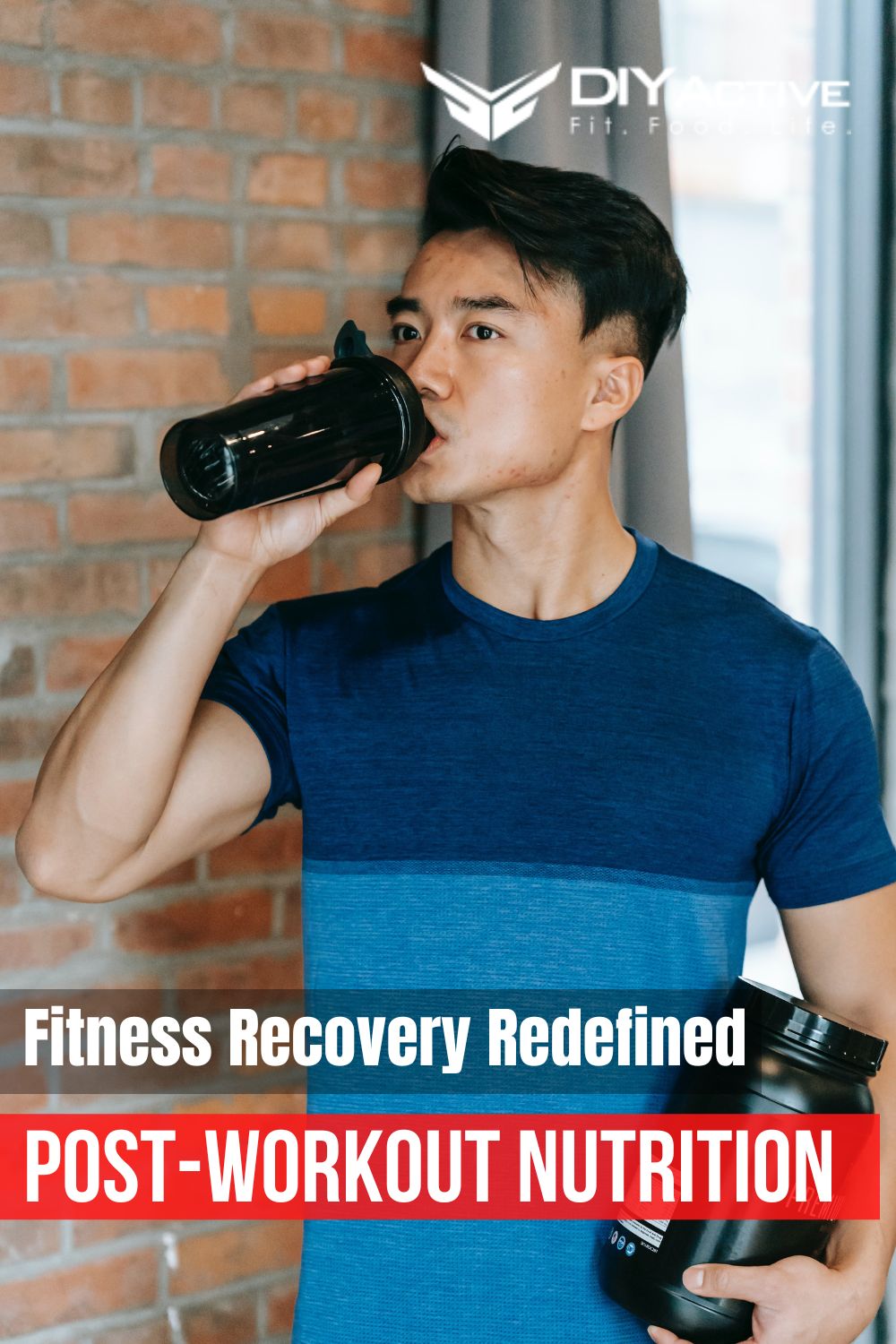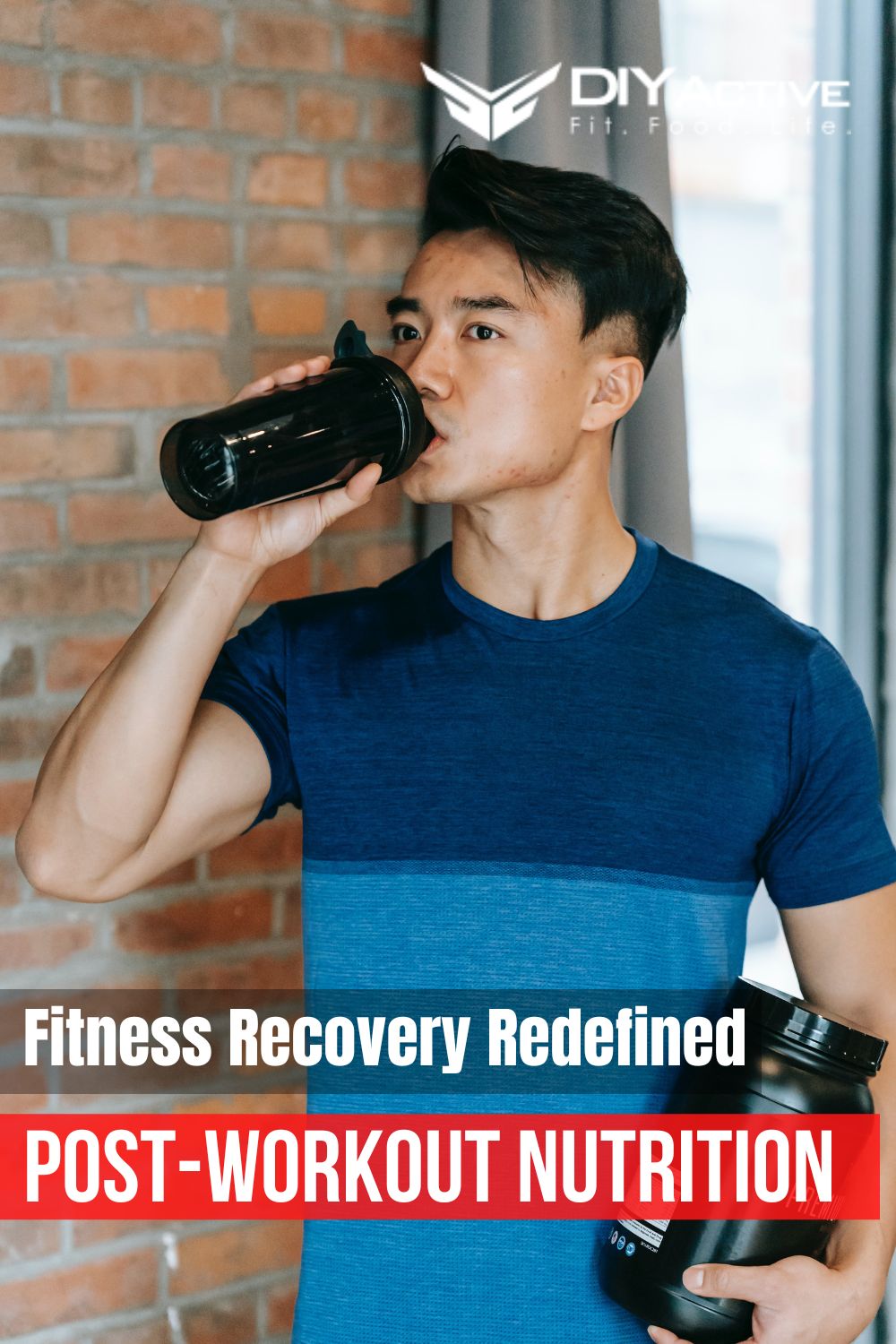Fitness Recovery Redefined – Post-Workout Nutrition
- Being Outside Is Good For Your Body and Mind — Here’s Why - December 14, 2023
- The Chicest Bracelets for Women (All Under $100) - December 14, 2023
- Water Is Life — Here Are 11 Simple Ways to Drink More of It - December 14, 2023

Post-workout nutrition is a subject people often overlook, and it’s crucial to understand that it provides unparalleled benefits because it helps your body recover. You need to refuel your body after an intense workout because if you neglect to replenish it, you can feel fatigued and stall the recovery process.
How Post-Workout Nutrition Helps You
When you don’t restore the nutrients you lose during training; you expose your body to further damage.
Getting the right fuel after a workout is as important as performing the proper exercises when you try to build muscle and achieve specific fitness goals. Post-workout nutrition significantly impacts your recovery because it enables muscle growth, reduces soreness, enhances your immune system, and replenishes glycogen.
It’s also true that the latest research uncovered that you don’t have to consume protein immediately after leaving the gym to reap strength-priming and muscle-building benefits. You can benefit from the same results if you eat a nutritious meal once you get home or a couple of hours later.
This being said, let’s dive into the subject and learn how post-workout nutrition helps you achieve your fitness goals.
Why do you have to eat after a workout session?
To understand how essential post-workout nutrition is, you need to learn how physical activity impacts your body. When training, your muscles use glycogen – the main fuel source your body prefers during a high-intensity workout.
Therefore, your muscles are partially depleted of glycogen at the end of training. Depending on how intense your workout session is, the proteins in your muscles could also be damaged or broken.
nce you leave the gym, your body has to rebuild the glycogen stores to repair tissues and regrow proteins. Eating the necessary nutrients after a workout session helps your body recover faster. It’s pretty important to eat protein and carbohydrates after you exercise. Proper post-workout nutrition helps your body:
– Recover
– Restore glycogen stores
– Boost muscle growth
– Decrease muscle protein breakdown
When you perform fitness exercises, you put your body under a lot of stress, so recovery is crucial to prepare for the next workout. However, when you overstress your muscles, it can harm your health.
A suppressed immune system, inability to lower inflammation, and decreased recruitment of muscle fibers are a couple of the negative effects you can experience if you don’t fuel your body properly. It’s paramount to engage in the proper recovery practices to mitigate the side effects and enable your body to recover and regain strength.
The do’s of post-workout nutrition
Fuel your body with protein
Protein is an essential nutrient for post-workout recovery because it plays a crucial role in building and maintaining lean body mass. But you might have the misconception that you need to eat a large meal rich in protein after your workout to stimulate muscle growth and prevent muscle protein breakdown.
Your body uses the amount of protein it needs and excretes the rest via urine. Therefore, you should ensure that you consume the right amount throughout the day and leave a portion for your after-workout meal. Fitness experts state that consuming 0.25-0.30 grams of protein/kg body weight post-workout offers the amount of protein necessary to encourage recovery.
It’s recommended to consume complete protein-containing amino acids your body cannot produce naturally. Whey protein is an excellent supplement because it promotes digestion, initiates muscle protein synthesis, and is high in leucine. You can get the protein from a powder product, but you’re encouraged to consume food first, like eggs, almonds, chicken, fish, and cottage cheese.
Eat carbs
Carbohydrates have a key role in adaptation to training and performance because your brain and central nervous system use them as a primary fuel for aerobic and anaerobic activities. Your body uses carbs as an energy source for intensive training, and you often feel tired after an intense workout session.
The amount of carbs you need after working out depends on several factors (your fitness goals, the type of exercises you perform, and your health history). After a traditional strength-training workout, you need around 0.8-grams of carbohydrates/kg of body.
Sleep
Sleep isn’t a nutritional strategy, but it’s vital for adequate recovery because it aids in performance, mental and physical health, and body composition maintenance and changes. However, if you deal with insomnia or struggle to fall asleep, you may need some help to get into a slumbering state.
CBD is a natural ingredient that can help you relax and fall asleep easier. If you want to find more about its properties, check Seedsman’s website because it provides complete information. When your sleep is compromised, your athletic ability can decline, and your body finds it more challenging to lower inflammation. Supposing you decide to use natural CBD supplements, you can purchase cannabis seeds online.
Increase your glycogen intake
As mentioned earlier, when working out, your glycogen stores get depleted, so you need to use carbs to replenish them. When you consume carbs, your body releases insulin which transports glucose from your blood to your muscles and cells. Your body forms glycogen with excess fuel, and eating protein and carbs post-workout encourages a proactive release of insulin.
Consume healthy fats
Fat in small amounts is also essential during post-workout recovery because it helps you feel satisfied with your food and full for a longer period. As you already know, there are good and bad fats, and it’s crucial to consume them from good sources.
Saturated and trans fats are bad fats, and if you eat them in excess, you can increase blood cholesterol levels. You can find saturated fats in processed meats like bacon and salami and dairy products like cheese and milk.
Monosaturated and polyunsaturated fats are good fats as they can reduce the risk of heart issues and lower cholesterol levels. You can find healthy fats in fish, chia seeds, avocados, and nuts.
Wrap-Up
Post-workout nutrition is essential for your fitness evolution. Each individual has specific needs, and you should educate yourself on what nutrients you need according to your fitness level and health.
Photo by Brooke Lark
Photo by Andres Ayrton
